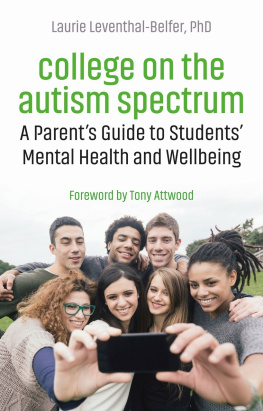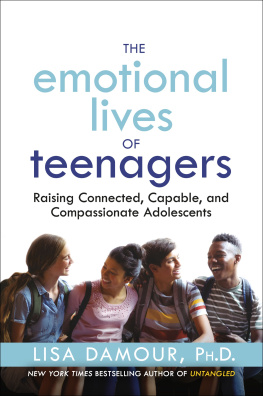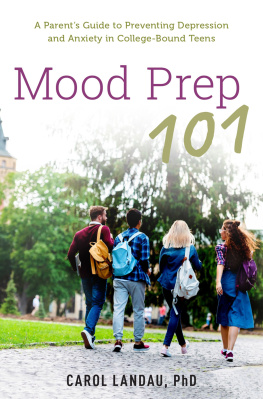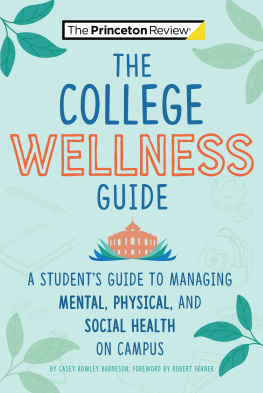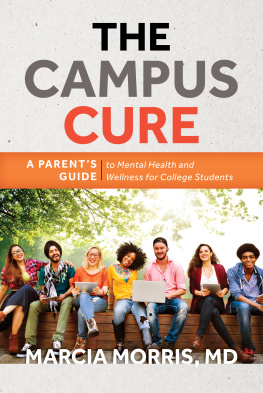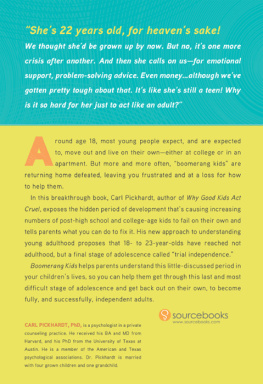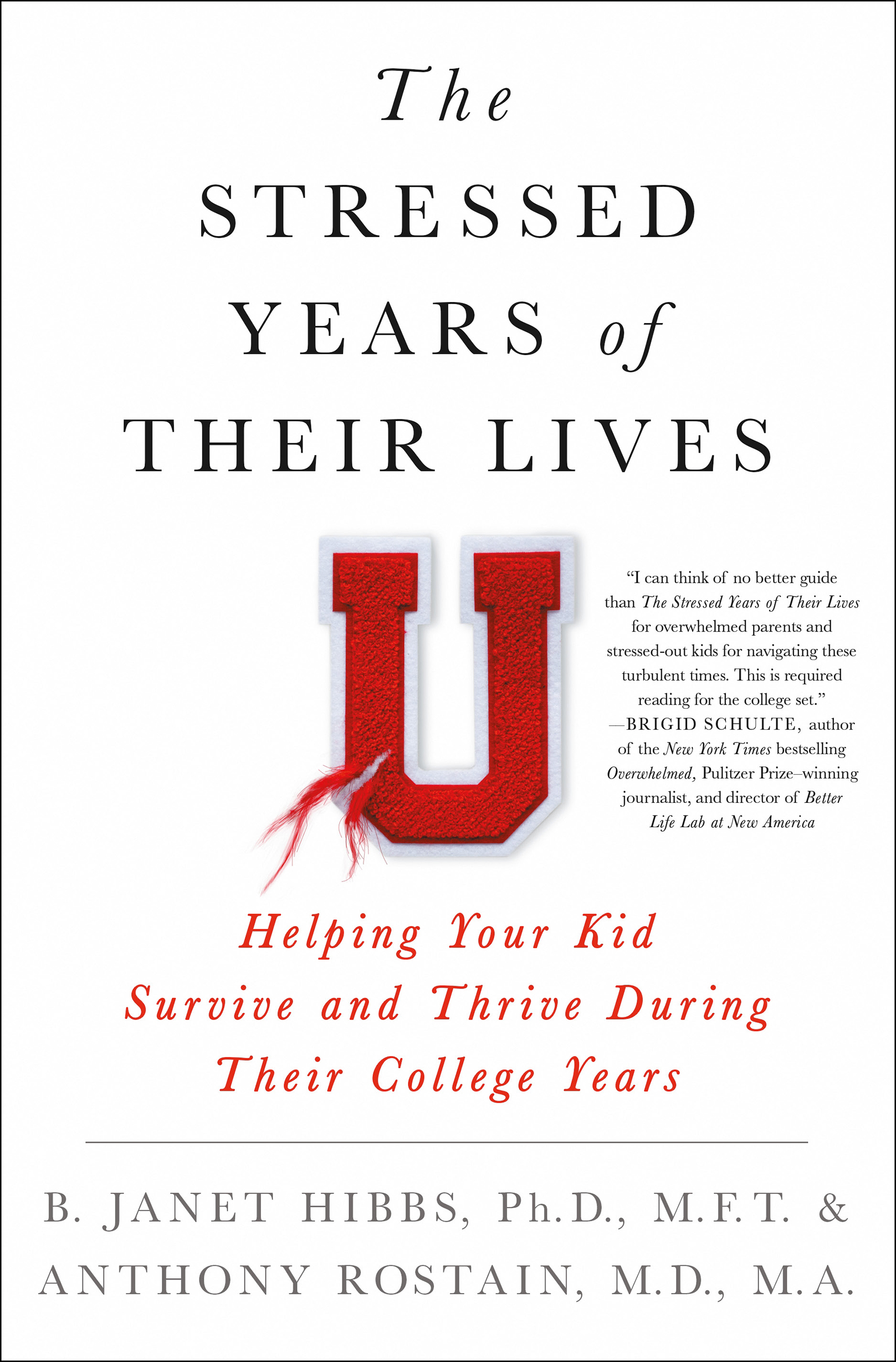The author and publisher have provided this e-book to you for your personal use only. You may not make this e-book publicly available in any way. Copyright infringement is against the law. If you believe the copy of this e-book you are reading infringes on the authors copyright, please notify the publisher at: us.macmillanusa.com/piracy.
In memory of my mother, Jeannette J. Hibbs, who embodied hope, advocacy, and perseverance.
And in honor of my caring and courageous sons, Jared and William, who taught me what I didnt know and who I needed to become.
B. HIBBS
I dedicate this book to the memory of my mother, Gita Alfandary, whose love of life and whose generosity of spirit were a continuous source of inspiration to me. And with deep appreciation to my life partner, Michele, and to my children, Isabelle, Julian, Sam, and Genevieve, whove taught me the meaning of family.
A. ROSTAIN
This book had many lives. Its first incarnation, as a memoir, brought author Libby Mosier, B.s Bryn Mawr alum and soon friend, into the project. Libbys insightful guidance was deeply encouraging. Next, award-winning journalist and author, Brigid Schulte, generously and enthusiastically recommended her discerning agent, Gail Ross. Gail immediately got the book, and envisioned and wisely guided its conceptual evolution, offering many important ideas to strengthen its relevance to future readers. Gails talented team of Anna Sproul-Latimer and Dara Kaye presented keen comments in the proposal stage. Later, Gail introduced us to fellow writer Allan Fallow, intelligent, earnest, and charming in equal measure, who expertly converted many a phrase, sentence, and paragraph from academic to lay speak. Gwenn Hibbs, B.s sister, was an invaluable and reliable research assistant, critical reader, and copy editor throughout the entire writing process.
The book found a welcome home at St. Martins Press. We are enormously grateful to executive editor Jennifer Weis, whose unwavering belief in the book buoyed us over the duration of our journey as co-authors. Ms. Weiss incisive, wise, and candid refinements were joined in their excellence by editor Sylvan Creekmore, who shepherded us through crucial and thoughtful revisions. Sylvan was also a fantastic heart line of the St. Martins team, graciously responding to our many questions and requests. We also extend our thanks to other members of the remarkable team at St. Martins, including Sallie Lotz, Laura Clark, Brant Janeway, Eric C. Meyer, Scottie Bowditch, Chloe Volkwein, and Karen Masnica. David Rotstein artfully created the book jacket, which perfectly captured the zeitgeist of the college years.
We are also especially grateful to those colleagues who heard about the idea for this project and strongly encouraged us to pursue it. Dr. Victor Schwartz, chief medical officer of the Jed Foundation, and Alison Malmon, founder and director of Active Minds, were very enthusiastic about the direct approach we were taking to educate parents and families of college students with mental health issues. They generously offered honest feedback about our vision and our message, and they provided important technical resources from which we have extensively borrowed. Steve Pilch, head of the Shipley School; Maureen Rush, vice president for public securty at Penn; Bill Alexander, former director of Penns counseling and psychological services; and Eric Furda, dean of admissions at Penn, were reliable sources of great insights into the realities of the college experience and were kind enough to be interviewed and quoted for the book.
A special thanks to the students, parents, principals, and post-secondary educators whose experiences and interviews personally illuminate the disparate stressors and needed resilience of the college years. To SLA principal Chris Lehmann, whose visionary leadership inspires many deserving youth; to the students and parents at SPEAKUP! whose founder, Martie Gillin, and president, Martie Bernicker, have done so much to teach parents and youth to speak openly and listen with acceptance. Martie Gillins enthusiastic conviction in the books mission included an introduction to national mental health advocate Patrick J. Kennedy, who gave a key endorsement of the book. Dr. Glenda Wrenn, director of the Kennedy Center for Mental Health Policy and Research, contributed an important and timely read and recommendation of the book. Lisa Joy Tuttle assisted with thoughtful suggestions during the final editing.
Jessica and Joanna Berwind welcomed the books emphasis on social emotional learning, which dovetailed with their foundations mission of youth development. They provided a warm embrace to launch the books ideas and reception. Many thanks to the dedicated, enthusiastic members of the Berwind team. Catherine Murphy offered unconditional support for the shared hopes and vision of this book. Her colleagues, Simran Sidhu, Laura McHugh, and Sydney Battle, graciously hosted us at the hive at Spring Point Partners and fostered rich dialogues about the challenges of transitioning to college.
We especially want to thank our patients and families over the years, from whom we have learned so much and without whom this entire body of work would not have been possible.
A final note of thanks from each of the authors.
My deepest appreciation goes to B. Hibbs, who entrusted me with Jareds care and who participated fully in the family sessions we held to foster his recovery. B.s devotion to her sons is inspiring, as is her dedication to the project of getting Jareds story into print. I am forever grateful for her unflagging pursuit of this goal and for her warm and generous invitation to join her in this writing project. In more ways than one, she has been the moving force bringing The Stressed Years of Their Lives to fruition. Its been a wonderful journey of co-creation.
Among my colleagues in the Department of Psychiatry at the University of Pennsylvania Perelman School of Medicine, Im especially grateful to Dr. J. Russell Ramsay, my partner for almost twenty years in the adult ADHD treatment and research program. Our collaboration has been a constant source of energy, creativity, discovery, fulfillment, and fun. I also am thankful for the mentorship and friendship of Dr. Aaron Beck, who has always been a role model and a genuine tutornot unlike the role Merlin played for young King Arthur. Last but not least, I want to thank Dr. Richard F. Summers for his steadfast encouragement and sage advice as I embarked on this writing project during the time we served together as co-directors of psychiatry training for the department.
I gained a tremendous amount of knowledge and insight about the systems aspects of college mental health from my role as co-chair of the presidents and provosts task force on student psychological health and welfare. I thank President Amy Gutmann and then-Provost Vincent Price for their faith in my leadership and Professor Rebecca Bushnell for her wisdom and savvy guidance as co-chair. Vice Chair Joann Mitchell; the task force members Jody Foster, Eric Furda, Charles Howard, Valerie Swain-Cade McCoullum, Maureen Rush, Wendy White, and Beth Winkelstein; and staffers Rob Nelson and Leah Popowich were invaluable contributors to our work, as was William Alexander, head of counseling and psychological services, and Myrna Cohen, director of the Weingarten Learning Center. I owe each of them a debt of thanks for helping me to learn about how college administrators understand and deal with the mental health challenges of college students on a daily basis.


